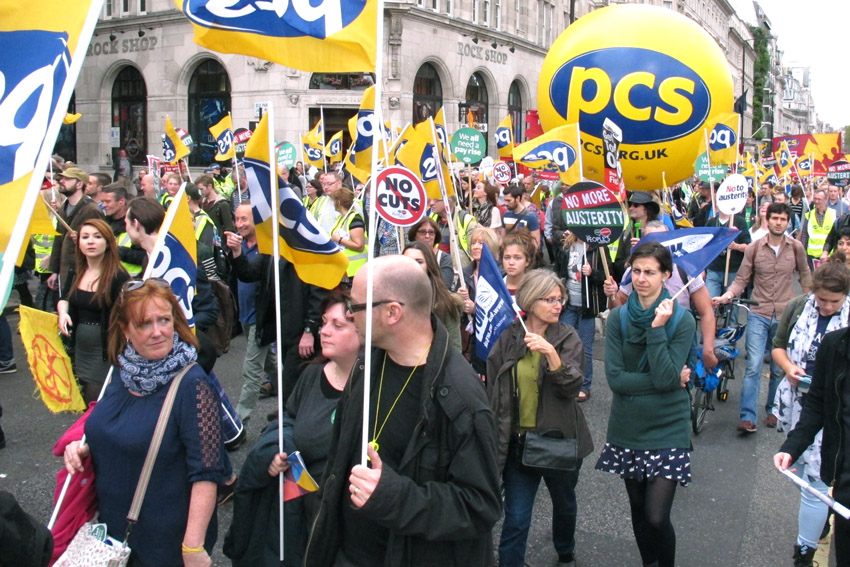
‘COORDINATED’ public sector strike action will escalate significantly in January and continue right up until May, PCS General Secretary Mark Serwotka warned yesterday in a BBC News interview.
British Army strikebreakers were again mobilised against 1,000 Border Force PCS strikers at Heathrow, Gatwick, Manchester, Birmingham, Cardiff and Glasgow airports, and the Port of Newhaven, yesterday.
Other public sector strikes were held by TSSA members at Great Western Railway and West Midlands Trains and PCS driving examiner members yesterday.
Backbench Tory MPs complained that Tory PM Sunak is being too slow to mobilise state forces against the unions and called for the urgent passing of promised new anti-union laws.
Michael Fabricant, Tory MP for Lichfield, claimed yesterday: ‘There is a growing urgency to enact laws that will prevent strikes in essential services. I hope to see the first draft of a Bill well before the end of January. The more militant unions need to know we mean business.’
Brendan Clarke-Smith, Tory MP for Bassetlaw, claimed: ‘We already have restrictions for other blue light services, such as the police, in terms of being able to strike and I think in cases where it can literally be a matter of life or death we need to make sure the public are protected.’
Serwotka responded: ‘Members of our union are being treated worse than anyone else in the economy. Even though they work directly for the government they’ve been offered the lowest pay increase – just 2% when inflation is 10-11% – along with tens of thousands of jobs being cut and terms and conditions being cut.
‘So the actions will continue and are set to escalate significantly in January, where strikes will move into the DVLA and also our executive will meet on 11th January to name the day for all 100,000 members coming out on strike at the same time.’
He continued: ‘The government is spending tens of millions of pounds to bring troops into our airports.’
He contrasted this to the plight of the government’s ‘own staff’, 40,000 of whom are using foodbanks and ‘45,000 are claiming in-work benefits because they are so poor.’
He went on: ‘First of all, the government is the employer, all civil servants are directly employed by the government. So in this case, it is the government that is refusing to negotiate.
‘Secondly, the government has given its own workforce less than anybody else in the economy is getting. Most people are on strike because they are rejecting 5-6% pay offers. We have been given 2%.
‘Thirdly, the government has refused to negotiate, they have known this strike has been coming for months. They know that they have the lowest pay offer anywhere in the economy, that is the one they have made to their own workforce, but they have refused to put a single penny on the table.’
He added: ‘We have a mandate, a legal mandate that runs up until May. We are planning to significantly escalate the industrial action after Christmas.
‘So far 4 to 5,000 members have been out on strike, but there are 100,000 members who have voted to go on strike, so we will see this significantly escalate, and probably early in the new year all of our members will come out on strike at the same time. But we will also, we believe, see an escalation right across our economy.
‘We know that there are half-a-million teachers currently balloting for industrial action. We know the firefighters are balloting for industrial action. We know there are ongoing disputes with paramedics, with health service workers, with university lecturers, postal workers, train drivers, train workers and many, many more.
‘I think it is only a matter of time before all of the unions recognise that the government is the cause of these disputes, so I think we will work closer together and I think that we will see action that is coordinated and synchronised and escalating.’